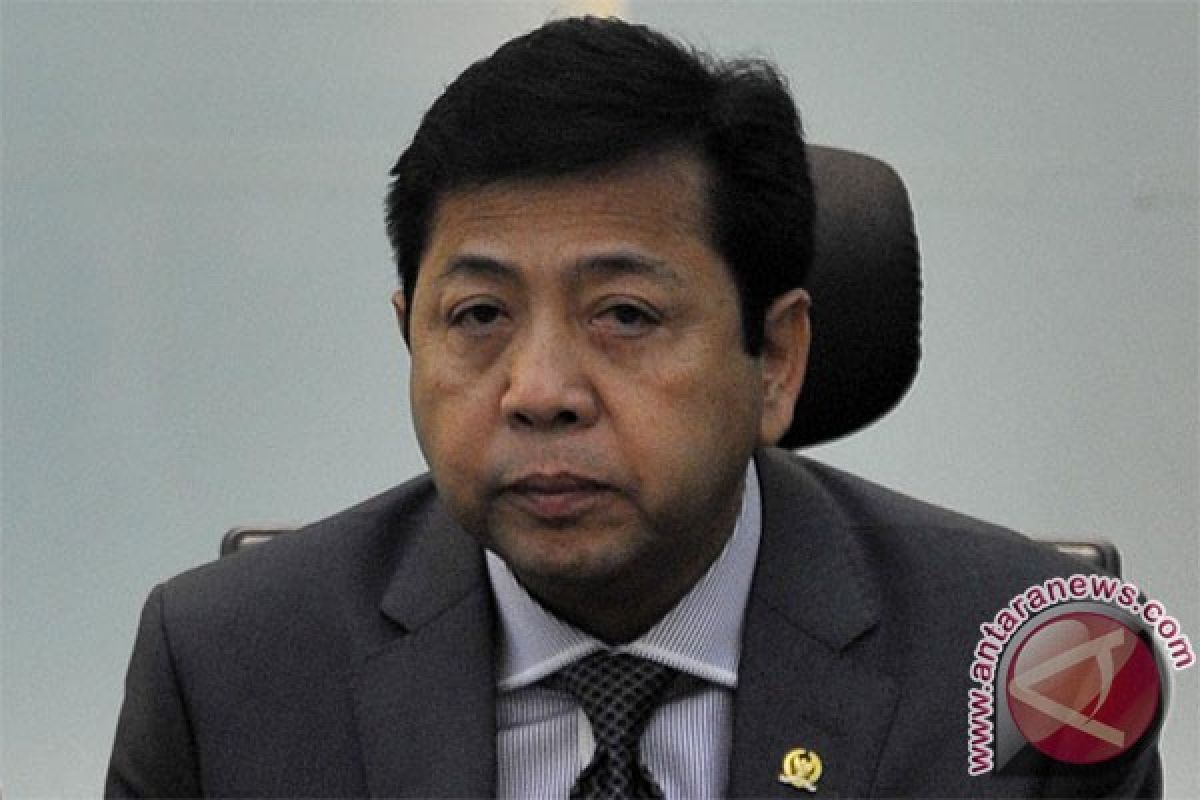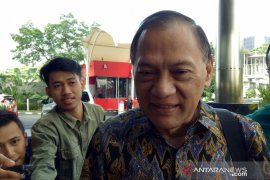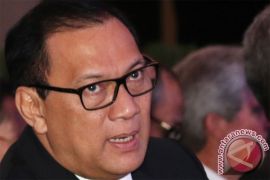I hope the BPK can immediately audit BI to provide a wide range of inputs ..."Jakarta (ANTARA News) - House Speaker Setya Novanto has urged the Supreme Audit Agency (BPK) to audit Bank Indonesia (BI) regarding the rupiahs depreciation.
"The House of Representatives Commission XI should invite the BPK to audit Bank Indonesia with this specific purpose," Setya Novanto said on Monday.
Novanto pointed out that the audit would determine the current monetary situation and reasons behind the rupiahs depreciation.
"I hope the BPK can immediately audit BI to provide a wide range of inputs, such as the current condition of stocks," he said.
With regards to setting up a crisis center to cope with the current economic condition, Novanto noted, it was expected to develop Indonesias economy.
"Golkar Party Chairman Aburizal Bakrie has asked the government to set up the crisis center, I think it is a good input for the government," he pointed out.
Novanto said the government was looking for a good solution to overcome the weakening of the rupiah.
Earlier, devaluation was not considered the best solution for Indonesia, BI Governor Agus D.W. Martowardojo said on Monday.
"Currency devaluation similar to that carried out in other countries will not be successful in Indonesia as the country still relies on primary imports and exports," he pointed out.
He noted that devaluation could be implemented in countries whose economies are based on production processes, or nations that produce from natural resources and their derivative products.
Indonesia currently has a 50-50 ratio in terms of production, and even its primary needs are still dependent on the export-import sector since the natural resources it exports are in the form of raw materials.
"As we still export raw materials and rely on imports, devaluation will not have a positive impact on the country," he emphasized.
The Chinese central bank has devalued the yuan by almost 2 percent against the U.S. dollar to encourage market reform.
This dramatic step has shocked the market and triggered the sale of shares in the United States, European Union, and several other commodity exchanges.
Vietnam has also decided to widen the span for its currency trading in interbank transactions from 2 to 3 percent.
The State Bank of Vietnam has also announced a hike in the average interbank exchange rate by 1 percent from 21,673 dong per U.S. dollar to 21,890 dong.
(Uu.A063/INE/KR-BSR/A014)
Editor: Priyambodo RH
Copyright © ANTARA 2015












